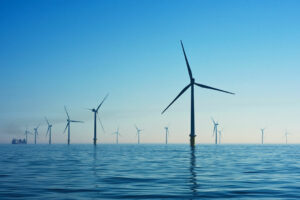THE Department of Transportation (DoTr) said it is hoping to complete in two years the feasibility study, including the detailed engineering design, for two ports to be repurposed to service offshore wind farms.
“Feasibility study and detailed engineering design take 18 to 24 months to complete but our target is (to finish it) as soon as possible,” Transportation Undersecretary for Maritime Elmer U. Sarmiento said via Viber.
Last week, the Department of Energy (DoE) and the Philippine Ports Authority (PPA) said they will start the process of repurposing three ports to service the offshore wind industry.
Ports will be a key link in developing offshore wind farms, serving as the base from which operators can transport materials needed offshore.
According to the DoE, the Port of Currimao in Ilocos Norte, the Port of Batangas in Sta. Clara, Batangas City, and the Port of Jose Panganiban in Camarines Norte have been shortlisted for repurposing, though the study covers only Currimao and Batangas.
The DoE has said that it will initiate the detailed engineering design process to ensure that the ports can handle the installation, commissioning, and operational requirements of offshore wind projects.
In July, PPA General Manager Jay Daniel R. Santiago said the Philippines will likely miss its target of launching offshore wind farm operations by 2028 due to lack of progress in developing specialized ports servicing wind farms.
The DoE has said that at least 10 concessions with a combined capacity of 6.72 gigawatts (GW) are projected to be operational by 2028.
The Port of Currimao is near 13 offshore wind energy service contracts (OWESCs) with a potential combined capacity of 9,489 megawatts (MW). Of the total, three service contracts are in the “advanced pre-development stage.”
The Batangas Port is close to 29 OWESCs with a combined capacity of 24,300 MW. Six of these contracts are in the permitting, licensing, and data gathering stages.
The PPA has said that at least nine ports are candidates for repurposing for servicing offshore wind projects.
“We cannot do all nine ports at the same time. Offshore wind projects are really capital intensive. We will prioritize what we consider as doable,” Mr. Sarmiento said.
Currently, the DoE has awarded a total of 92 OWESCs with a combined capacity of 66.10 gigawatts (GW) to 38 renewable energy companies.
The Philippines has an estimated 178 GW of potential offshore wind energy capacity, according to the World Bank. — Ashley Erika O. Jose

